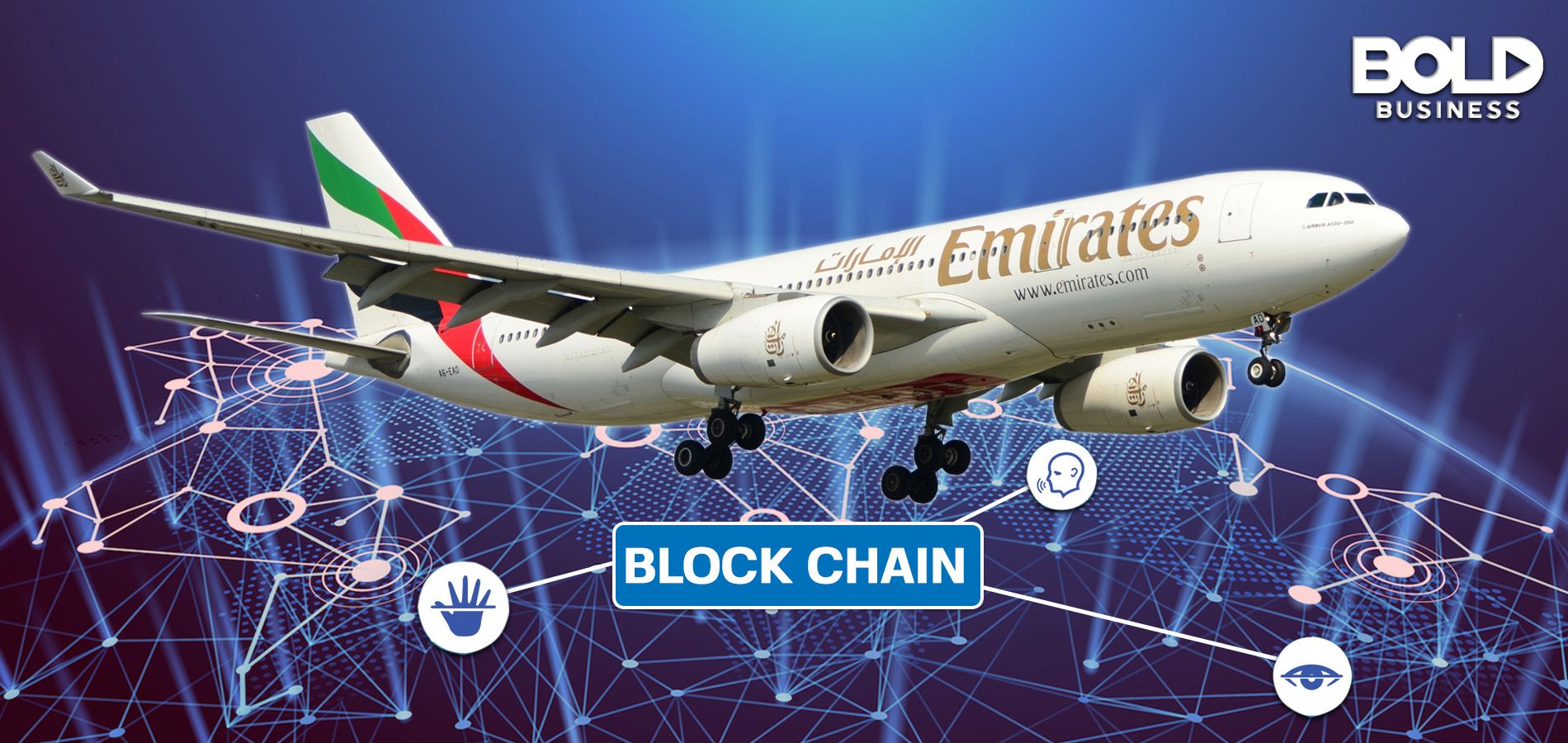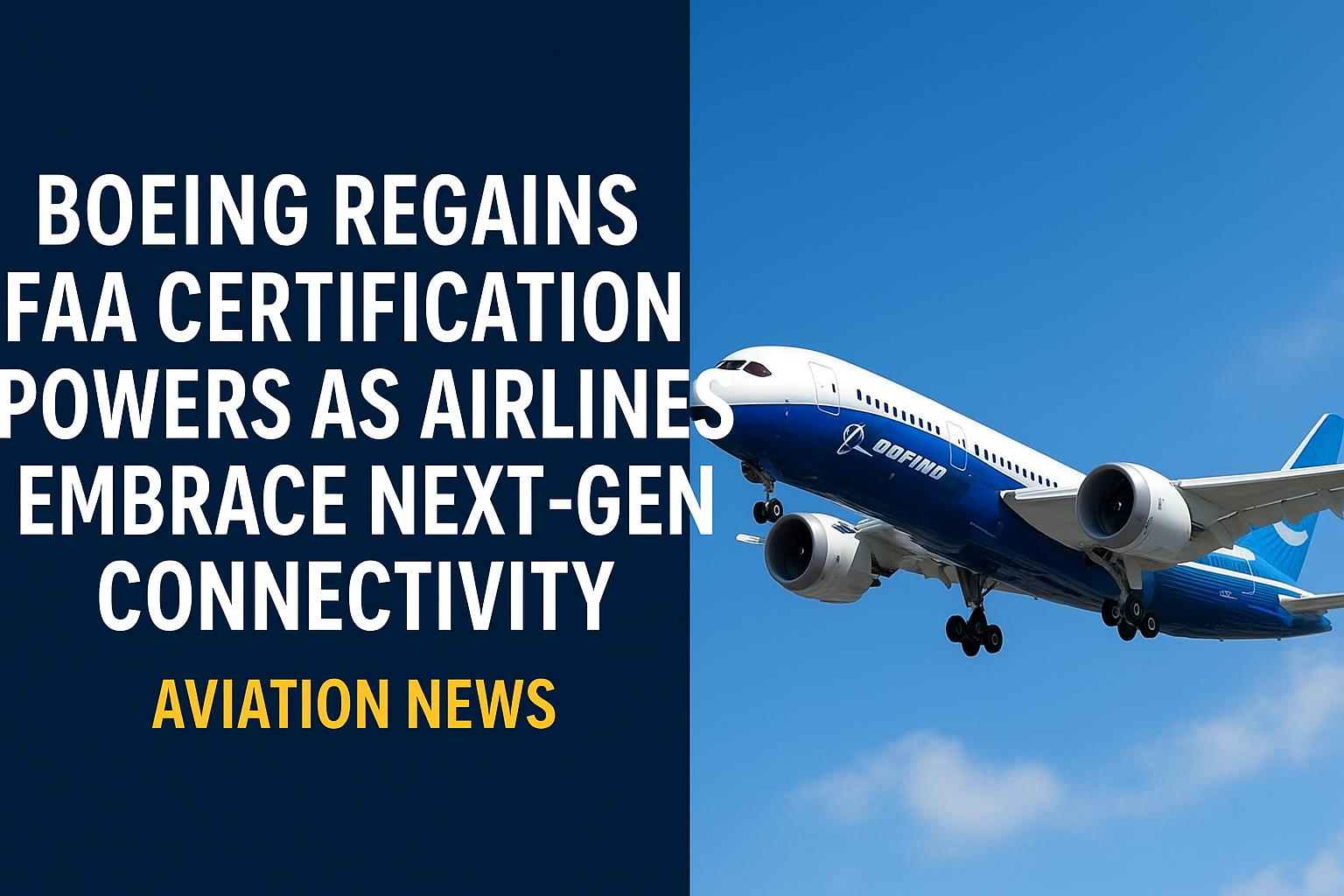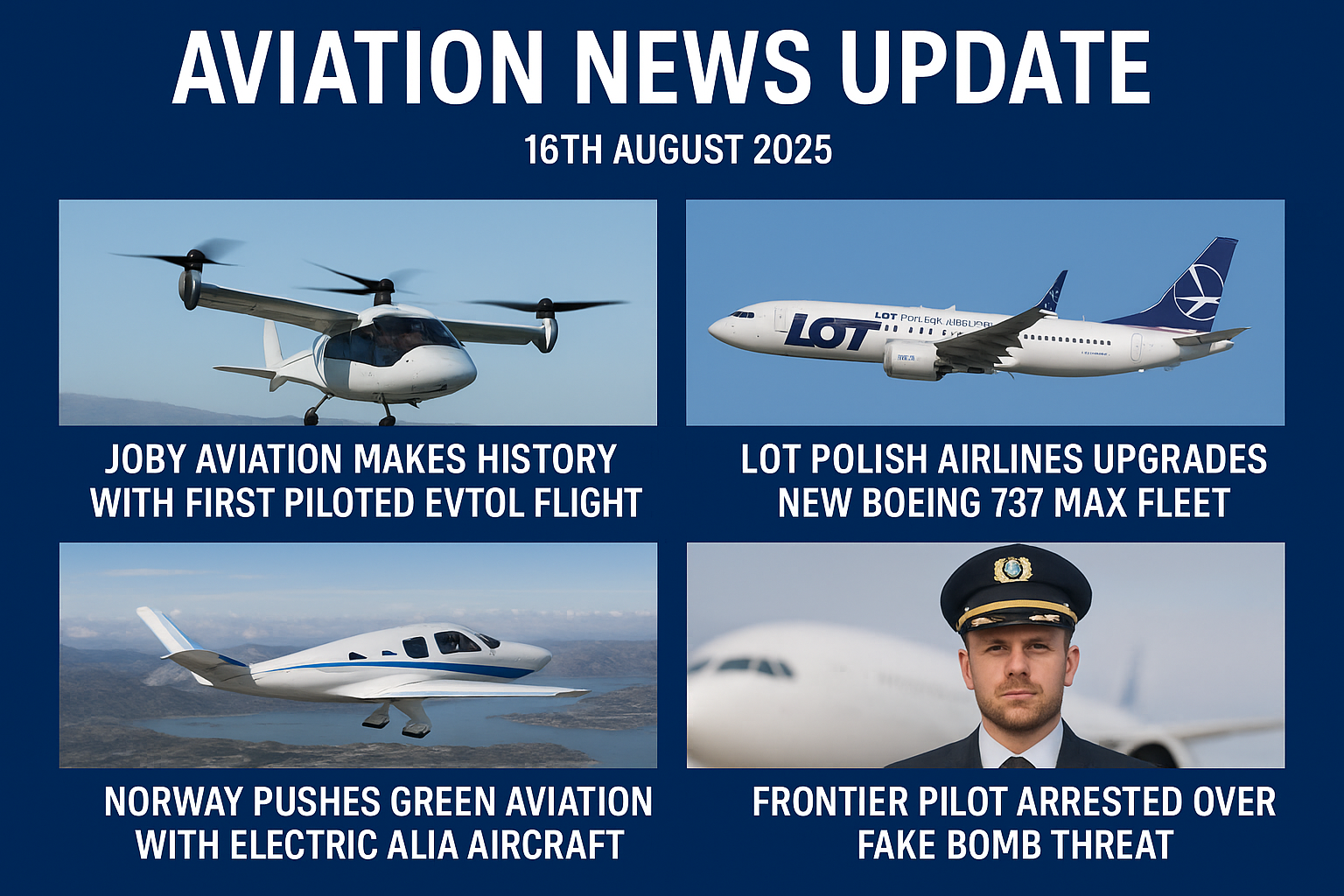AVIATION
Blockchain: Revolutionizing the Aviation Industry
“From Clouds to Chains: How Blockchain is Transforming the Aviation Sector!”
Published
2 years agoon

In the grand tapestry of human invention, the aviation industry stands as a testament to our insatiable desire to conquer the skies. Yet, like any great endeavor, it faces its fair share of challenges, including safety concerns, operational inefficiencies, and complex supply chains.
.png)
Enter blockchain technology- a decentralized, secure, and transparent system that has the potential to revolutionize the aviation industry. This article will explore the myriad benefits of Blockchain for the aviation industry, from enhancing safety and security to streamlining operations and transforming air cargo logistics.
What is Blockchain Technology?
At its core, Blockchain is a decentralized ledger, a veritable chain of blocks that relies on smart contracts and cryptographic security to ensure the integrity of its data. Blockchain records transactions across a network of computers. Its key characteristics include transparency, immutability, and security, making it an ideal solution for various industries, including aviation.

The technology consists of three main components: a decentralized ledger, smart contracts, and cryptographic security. Popular blockchain platforms used in aviation include Ethereum, Hyperledger, and IOTA.
How Blockchain Strengthen Aviation Safety

Safety and security are the twin pillars upon which the aviation industry rests, and blockchain technology offers a sturdy foundation for both.
Can Blockchain Ensure Safety?
Blockchain significantly enhances traceability and ensures compliance with regulatory requirements, ultimately reducing the risk of accidents. Here’s a more in-depth look at how Blockchain can improve aircraft maintenance and safety:
Immutable record-keeping:
One of the key features of blockchain technology is its immutability. Once data is recorded on a blockchain, it cannot be altered or tampered with. This ensures that the maintenance history of an aircraft is accurate and reliable, which is crucial for safety.
Transparency and traceability:
With Blockchain, records of all maintenance activities will be transparent and easily traceable. This means that every action taken on an aircraft, from routine inspections to major repairs, can be tracked and verified. This level of transparency helps to ensure that maintenance procedures are followed correctly and that any potential issues are identified and addressed promptly.
Decentralization:
Blockchain operates on a decentralized network. The data is stored across multiple nodes rather than in a single, centralized location. This makes it more resistant to hacking and data breaches, ensuring that sensitive maintenance information remains secure.
Streamlined communication:
Furthermore, Blockchain can facilitate more efficient communication between different parties involved in aircraft maintenance, such as manufacturers, maintenance providers, and regulatory authorities. By providing a single, shared source of truth, Blockchain can help to reduce miscommunication and errors, leading to improved safety.
Smart contracts:
This modern technology also enables the use of smart contracts, which are self-executing contracts with the terms of the agreement directly written into code. In the context of aircraft maintenance, smart contracts could be used to automate specific processes, such as the release of funds upon completion of a maintenance task. It helps to ensure that maintenance providers are incentivized to complete their work on time and to a high standard.
Blockchain Contribution to Aviation Security
.png)
Blockchain applications can bolster aviation security eventually through the improvement in passenger identity verification and securing the supply chain against the scourge of counterfeit parts. Dive deeper into its remarkable applications:
Passenger identity verification:
One of the critical challenges in aviation security is ensuring that passengers are who they claim to be. Blockchain technology can be used to create a secure, tamper-proof digital identity for each passenger, which can be verified at various points throughout their journey. This digital identity could include biometric data, such as fingerprints or facial recognition, as well as personal information, such as name, date of birth, and passport number. By storing this data on a blockchain, it becomes virtually impossible for a passenger’s identity to be falsified or tampered with, helping to enhance security.
Securing the supply chain against counterfeit parts:
The aviation industry relies on a complex global supply chain, which can be vulnerable to the infiltration of counterfeit parts. These counterfeit parts can pose a significant risk to aircraft safety, as they may not meet the required quality standards. From its manufacture to the installation provenance of each component on an aircraft, Blockchain technology can be used to create a secure and transparent record. This can help to ensure that only genuine, certified parts are used in aircraft maintenance, reducing the risk of accidents caused by counterfeit components.
Streamlining customs and border control:
Blockchain technology can also be used to streamline customs and border control processes, helping to improve security and reduce waiting times for passengers. By storing passenger data on a blockchain, customs, and border control agencies can quickly and easily verify a passenger’s identity and travel history, helping to identify potential security threats and expedite the clearance process for low-risk passengers.
Enhanced communication and data sharing:
Providing a single, shared source of truth, Blockchain can help to reduce miscommunication and errors, leading to improved security and more efficient operations. This technology can facilitate more efficient communication and data sharing between different stakeholders in the aviation industry, such as airlines, airports, and regulatory authorities.
Incident reporting and investigation:
By storing this data on a blockchain, it becomes virtually impossible for it to be tampered with or altered, ensuring that investigators have access to accurate and reliable information. Blockchain can ensure that lessons are learned from past events and appropriate measures are taken to prevent future incidents.
Streamlining Airline Operations with Blockchain

- The hustle and bustle of airline operations can be a veritable Gordian knot, but blockchain technology offers a sharp solution. By optimizing flight ticketing and bookings, Blockchain can cut through the tangled web of fraud and opacity while also enhancing customer loyalty programs.
- And let us not forget the humble baggage, for Blockchain can simplify its tracking and management, reducing lost luggage incidents and improving the passenger experience with real-time updates.
Transforming Air Cargo and Logistics
- The air cargo industry, that great engine of commerce, stands to benefit immensely from the adoption of blockchain technology. Blockchain can enhance supply chain efficiency in air cargo by providing real-time tracking of shipments and improving transparency. This technology can also reduce paperwork and streamline customs processes, saving time and resources.
- Trust and accountability in air cargo transactions can be enhanced through Blockchain’s smart contracts, which automate contractual agreements and ensure integrity in temperature-sensitive cargo transportation.
Breaking Down The Barriers: Blockchain Adoption In Aviation
Despite its potential benefits, implementing Blockchain in aviation faces challenges, including regulatory and privacy concerns. To overcome these barriers, collaboration between industry stakeholders, regulatory bodies, and technology providers is crucial. Developing standardized protocols and addressing data privacy concerns will be key to fostering industry-wide adoption.
However, Blockchain implementation in aviation can be approached in several ways:
- First, we need to establish a collaborative environment that involves all relevant stakeholders, such as airlines, regulatory bodies, technology providers, and even passengers. By working together, we can ensure that everyone’s interests are taken into account.
- Next, it’s important to develop open standards and protocols that can be quickly adopted by all parties. This can be achieved by forming dedicated working groups or consortiums that focus on creating these standards. These groups should include experts from various fields, such as aviation, blockchain technology, cybersecurity, and data privacy. Through the combination of their expertise, robust and secure protocols can be developed.

- Regarding data privacy concerns, we need to ensure that the blockchain solutions implemented in aviation adhere to existing data protection regulations, such as GDPR. This can be achieved by incorporating privacy-enhancing technologies, like zero-knowledge proofs and secure multi-party computation, into the blockchain systems. These technologies allow sensitive data to be processed and shared without revealing the actual information, thus maintaining privacy.
- Additionally, it’s essential to educate and raise awareness about the benefits of blockchain technology in aviation. This can be done through workshops, conferences, and other educational initiatives that target industry professionals and the general public. The surge in understanding and trust in the technology can accelerate its adoption and overcome resistance to change.
- Finally, we should also focus on pilot projects and real-world use cases that demonstrate the value of Blockchain in aviation. By showcasing successful implementations, we can build confidence in the technology and encourage more organizations to adopt it.
Future Outlook and Conclusion
.png)
In summary, blockchain technology has the potential to revolutionize the aviation industry, improving safety and security, streamlining operations, and transforming air cargo logistics. As the technology continues to mature, we can expect to see even more innovative applications of Blockchain in aviation. The transformative impact of blockchain technology in aviation cannot be overstated, and its adoption will undoubtedly lead to a more efficient, secure, and sustainable industry.
Credits
You may like
-
Buddha Air Flight U4901 ATR-72 Runway Excursion at Bhadrapur Airport
-


Massive Fire Erupts at Dhaka’s Hazrat Shahjalal International Airport — Flight Operations Suspended
-


Nepal Airlines’ Guangzhou Flight Postponed: Mismanagement or Diplomatic Delay
-


Boeing Regains FAA Self-Certification Rights, Airlines Eye New Connectivity Upgrades
-


Aviation News Update – 16th August 2025
-


Visitors’ Pass Banned at Tribhuvan International Airport
